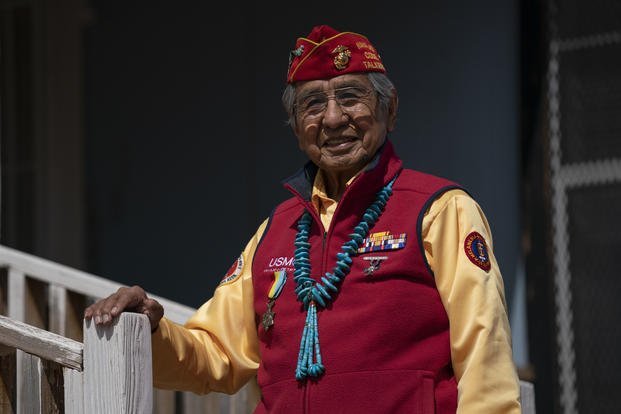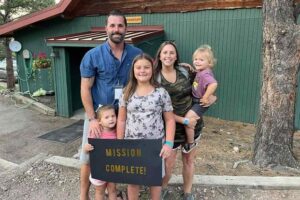Pentagon Reinstates Webpages Celebrating Navajo Code Talkers Amid Controversy
The Pentagon has reinstated several webpages dedicated to the wartime efforts of Navajo Code Talkers and other Native American veterans following backlash from tribal leaders. This comes after the pages were initially taken down in a broader sweep to eliminate military content associated with diversity, equity, and inclusion (DEI) initiatives.
In compliance with an executive order by former President Donald Trump that aimed to end federal DEI programs, the Department of Defense removed numerous pages highlighting contributions by women and minority groups. Pentagon officials, however, stated that the removal of the Navajo Code Talker content was unintentional.
“In the rare cases that content is removed — either deliberately or by mistake — that is out of the clearly outlined scope of the directive, we instruct the components and they correct the content so it recognizes our heroes for their dedicated service alongside their fellow Americans, period,” Pentagon press secretary John Ullyot clarified in a statement.
As of Tuesday, many of the Code Talkers’ pages were leading to a “404 – Page not found” message. By Wednesday, some had been restored, although those mentioning Native American Heritage Month were still offline. Meanwhile, large numbers of pages removed due to the DEI purge remain unavailable.
The Navajo Nation was informed by the White House that an AI-powered review process targeting DEI content led to the accidental removal of anything containing the term “Navajo,” as per a statement by Navajo Nation President Buu Nygren. Nygren expressed satisfaction with the resolution and emphasized the importance of preserving the legacy of the Navajo Code Talkers in both American and Navajo history.
Highlighting the sovereignty of the 574 federally recognized tribes in the U.S., Nygren and other Native American leaders conveyed their concerns to the Trump administration, emphasizing that these tribes should not be categorized solely under DEI initiatives.
During World War II, the U.S. Marine Corps recruited 29 Navajo men to develop a code based on their native language. This code, which included more than 200 terms and an alphabet, was used to communicate crucial wartime messages and was never deciphered by Japanese cryptologists. The Code Talkers played a pivotal role in every Marine assault in the Pacific from 1942 to 1945, contributing significantly to the Allied victory.
Peter MacDonald, one of the two surviving Navajo Code Talkers, expressed his alarm upon learning about the missing webpages. “That code became a very valuable weapon and not only saved hundreds of thousands of soldiers, but it also helped win the war in the Pacific,” MacDonald remarked from his Arizona home. He also criticized the current administration’s approach to balancing the removal of DEI content with historical preservation.
The Department of Defense has since assured the public that it is committed to preserving the historical achievements of servicemen and women of color. Alongside the Code Talkers, the department also restored a webpage on Jackie Robinson’s military service and other pages honoring diverse military personnel.
Michael Smith, whose father was a Navajo Code Talker, questioned the rationale behind the removal of these pages. “I don’t know how taking Navajo Code Talkers off the Department of Defense website is saving the United States any money because that’s not consistent with the president’s order,” Smith commented.
Gov. Stephen Roe Lewis of the Gila River Indian Community shared his concerns over missing content related to all Native American veterans, including Ira Hayes, a Marine featured in the famous Iwo Jima flag-raising photograph. Despite some pages being restored, Lewis warned that the removals could signify a larger issue.
“The way it looks in the (executive) order, this language is skewed and made to sound like the diversity programs are the ones that are unethical,” Smith added.











